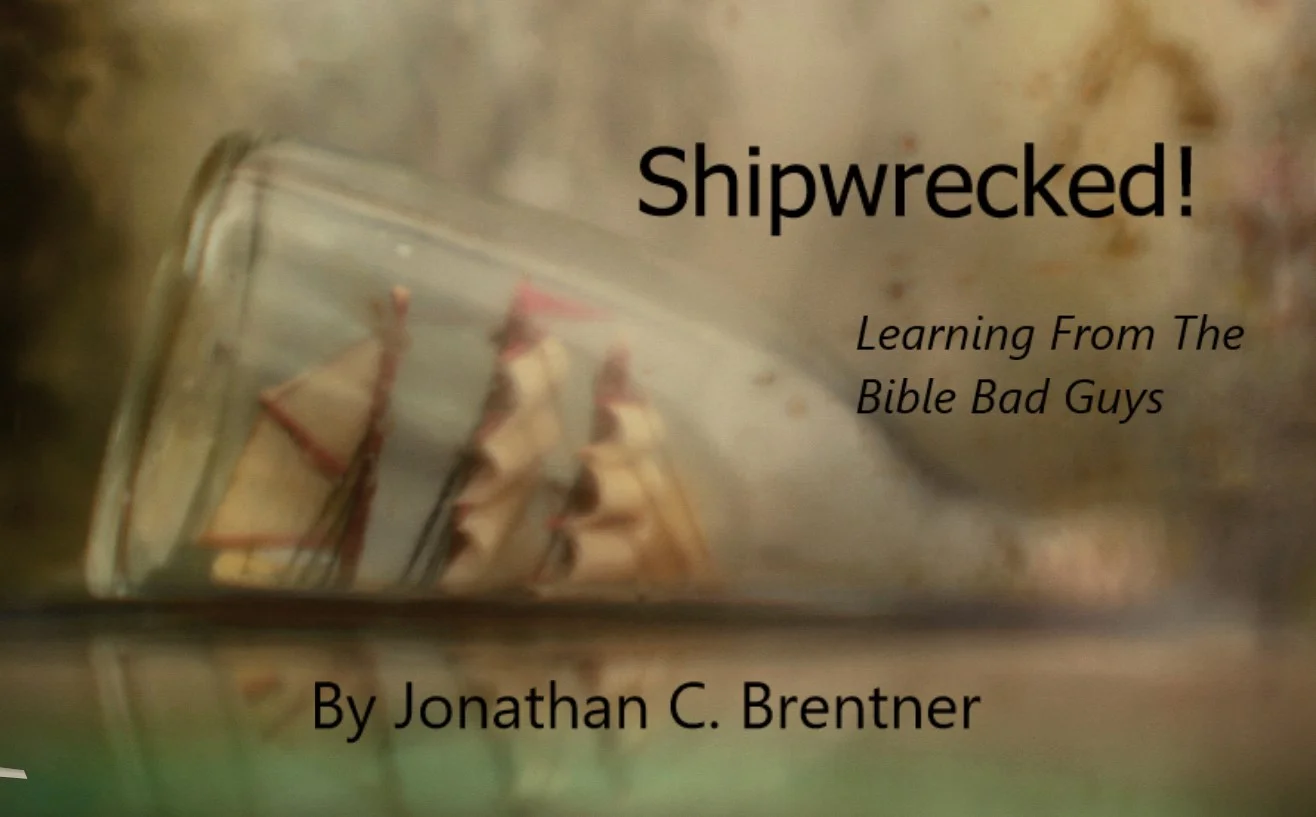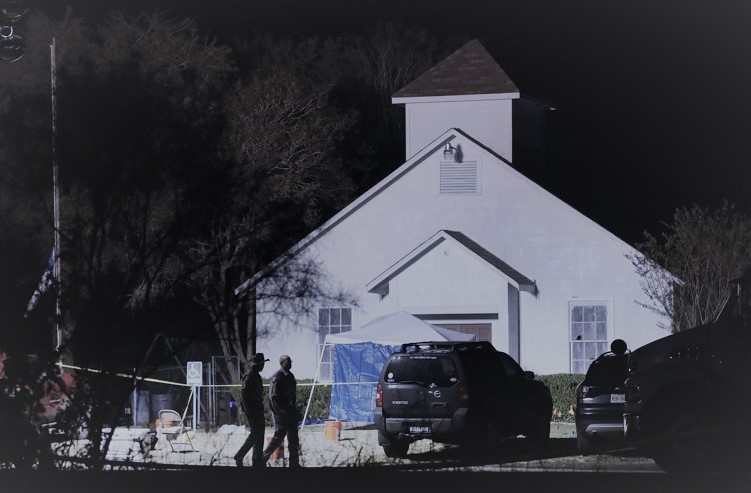 “We appear to be suffering a great crisis of hope.” Those words, written by John Eldredge in his September 2017 newsletter, aptly sum up our nation today.
“We appear to be suffering a great crisis of hope.” Those words, written by John Eldredge in his September 2017 newsletter, aptly sum up our nation today.
Despair has replaced hope in the lives of so many. Two-thirds of deaths caused by guns are suicides; many of these are older men who see no reason to continue living. The incidents of suicide overall are going through the roof. Addictions to drugs and alcohol are ever present problems in our nation that grow worse each passing day.
Even among Christians, we see an abandonment of hope. Many have tossed aside beliefs cherished for decades in favor of earthbound expectations that do little to relieve the apprehensions of life or the disillusionments of failed expectations. It’s no wonder that many believers experience many of the same problems as those in the world who possess no expectation beyond this life.
Those who look to the things of this world for satisfaction soon discover that life often thwarts their deepest desires. We do not have to look far to see their fury; it’s readily apparent everywhere on social media where angry venting often rules the day.
The Dangers of Anger
In an age of information overload, unless we hide in a cave all day we will all see things that irritate us or perhaps raise our blood pressure to unsafe levels. We read about injustice, listen as the media proclaims lies as truth, and watch as evil prevails where good should have triumphed. The apostle Paul recognized that at times we would feel such indignation when he wrote “be angry and do not sin.”
However, notice how Paul ends his instructions regarding anger in Ephesians 4:26-27, “. . . do not let the sun go down on your anger, and give no opportunity to the devil.”
The danger for all of us, regardless of what we believe, comes when we hold on to our anger and let it fester within us. Scripture says that when this happens, we give an opportunity for the devil to work his destruction in and through us.
In my book Shipwrecked Lives (planned for publication next year), I tell the tale of Absalom who allowed anger to destroy his life. He had good reason for his rage, but rather than deal with it in a healthy manner he allowed bitterness to take root and flourish inside him. In the end, 20,000 soldiers died as a result of his rebellion against his father, King David. Absalom, described as the most handsome man in all of Israel, died hanging from a tree as soldiers threw spears at him.
I realize that for all those reading this post, anger will not lead to death or murder as it did with Absalom. However, wrath can be destructive in our lives as well as the enemy of our souls skews our thinking, ruins relationships, and causes a host of health problems that stem from holding on to anger for lengthy periods of time.
The Path of Hope
There is a much better way than the path of anger, frustration, and despair. Hope!
Biblical hope is not positive thinking as some might think of it. You may be planning an outing this weekend with the hopes that you will see sunshine and clear skies. It may rain all day, or worse, despite your hopes for good weather. Our hope is so much more certain than this.
In his newsletter, John Eldredge describes biblical hope this way, “When I speak of hope I mean the confident expectation that goodness is coming. A rock-solid expectation, something we can build our lives on.” Such hope never ever disappoints us; Christ’s unfailing promises guarantee it.
Amidst the frustrations of life, Jesus has set before us the wonderful path of hope. I love the words of Proverbs 4:18, “But the path of the righteous is like the light of dawn, which shines brighter and brighter until full day.” We know from the New Testament that the righteous are not the “do-gooders” around us but those who know Jesus as their Savior and walk by the light of the Gospel.
Regardless of the outcome of our lives here on earth, this hope will never let us down. If the Lord takes us home through death sooner than we would like, we will be in His presence and experience all the wonderful joys of heaven. If Jesus comes for us today or in the near future, we will instantly possess immortal bodies and be with the Lord forevermore.
No one, upon arriving in heaven, will wish that Jesus had delayed the rapture a little longer.
Disappointment and biblical hope are true antonyms; they never go together. No one, upon arriving in heaven, will wish that Jesus had delayed the rapture a little longer.
1 Peter 1:3-4 says, “. . . he has caused us to be born again to a living hope through the resurrection of Jesus Christ from the dead, to an inheritance that is imperishable, undefiled, and unfading, kept in heaven for you.” The apostle, writing to believers suffering amidst great persecution, pointed them toward their heavenly “inheritance” that was secure and waiting for them. This is one of the wonderful purposes of the promises Jesus makes to us regarding eternity, they comfort us and bring light to our paths regardless of our circumstances.
I remember listening to an elected official speak on the radio as I was driving my car one day many years ago. I felt anger building inside me as he continued to speak (his words distressed me, to say the least). Finally, in frustration I switched to a Christian music station. The song playing at that moment was God is in Control by Twila Paris. As I relaxed and even felt a smile come across my face, I realized that this was no coincidence. The Lord knew I needed the relief that came from remembering His sovereignty.
God is wondrously in control of everything. That’s how we know our hope will never ever fail us or disappoint us. The glories of eternity, immortal bodies, and joy beyond what we can now imagine await us just on the other side. It’s a sure thing; as the Apostle Peter said, we cannot lose the “inheritance” Jesus is preparing for us.
When we feel indignation bubbling up inside us, it’s then we must remember where our ultimate hope lies. It does not rest in people or in a world careening toward the terrible years of the Great Tribulation. It does not rest in politicians who will fail us many more times than not. Our hope remains secure in Jesus who will satisfy us forever with the wonders of eternity.
Our hope remains secure in Jesus who will satisfy us forever with the wonders of eternity.
Doesn’t focusing on the biblical promises of eternity sound a whole lot better than holding tightly to our anger, which only wreaks havoc within us with bitter or vengeful thoughts?
Jesus offers us unfailing, “rock-solid,” ever-satisfying hope. He offers us the wonderful freedom of His love and a promise of eternity that will be joyful beyond what we can imagine. This glorious journey begins with Jesus’ appearing to take us home to His Father’s house in heaven (John 14:2-3).
Do not let anyone change the focus of your ultimate hope to temporal realities of this life that can never satisfy you. Why stay earthbound in your focus when Jesus is coming to complete your adoption into His family and redeem your bodies (Rom. 8:23)? As Jesus followers, we will live forever with Him in a place where sorrow, pain, death, and tears will no longer exist (Rev. 21:4).










 Is there anything around us today that we could describe as “unshakable?” Politicians, movies stars, and leaders continually prove that they are frail human beings just like everyone else.
Is there anything around us today that we could describe as “unshakable?” Politicians, movies stars, and leaders continually prove that they are frail human beings just like everyone else. Many people today do not believe in a millennial kingdom. They believe Jesus will return at a distant future time, judge humanity, and bring in the eternal state.
Many people today do not believe in a millennial kingdom. They believe Jesus will return at a distant future time, judge humanity, and bring in the eternal state. Thomas Chisholm was born in a log cabin in Franklin, Kentucky in 1866. He became a believer at the age of 27 and a Methodist preacher at the age of 36 despite a lack of formal training for the ministry. Unfortunately, after only a year poor health made it impossible for him to continue as a pastor.
Thomas Chisholm was born in a log cabin in Franklin, Kentucky in 1866. He became a believer at the age of 27 and a Methodist preacher at the age of 36 despite a lack of formal training for the ministry. Unfortunately, after only a year poor health made it impossible for him to continue as a pastor. As I reflect on the Sutherland Springs shooting this past Sunday, the word “brutal” comes to my mind. In 2 Timothy 3:2 the Apostle Paul says that people will become “heartless, unappeasable . . . brutal . . . treacherous, reckless” during the last days. Is this not what we are seeing throughout our world to an ever increasing degree?
As I reflect on the Sutherland Springs shooting this past Sunday, the word “brutal” comes to my mind. In 2 Timothy 3:2 the Apostle Paul says that people will become “heartless, unappeasable . . . brutal . . . treacherous, reckless” during the last days. Is this not what we are seeing throughout our world to an ever increasing degree? During our visit to Savannah, Georgia last year, my wife and I came across a painting, La Parabola, at the Telfair Academy for art. The painting, shown above, depicts the entire life of a woman in two separate panels. I felt a sense of sadness as I initially studied the painting.
During our visit to Savannah, Georgia last year, my wife and I came across a painting, La Parabola, at the Telfair Academy for art. The painting, shown above, depicts the entire life of a woman in two separate panels. I felt a sense of sadness as I initially studied the painting. The apostle Paul begins his list describing the characteristics of people who make up the “perilous times” of 2 Timothy 3 with the phrase “lovers of self.” Does this not sum up the Facebook generation? For many, posting is all about drawing attention to themselves, their lives, and their opinions. It’s all about making them look good. I have not been immune to this temptation myself.
The apostle Paul begins his list describing the characteristics of people who make up the “perilous times” of 2 Timothy 3 with the phrase “lovers of self.” Does this not sum up the Facebook generation? For many, posting is all about drawing attention to themselves, their lives, and their opinions. It’s all about making them look good. I have not been immune to this temptation myself. This coming October 31st marks the five hundred year anniversary of the beginning of the Reformation. On October 31, 1517 Martin Luther posted his 95 Theses on the door of the Wittenberg Castle Church in Germany. These 95 Theses became the foundation of the Protestant Reformation, which for many restored the biblical ideal of justification by faith and thereby the purity of the Gospel message.
This coming October 31st marks the five hundred year anniversary of the beginning of the Reformation. On October 31, 1517 Martin Luther posted his 95 Theses on the door of the Wittenberg Castle Church in Germany. These 95 Theses became the foundation of the Protestant Reformation, which for many restored the biblical ideal of justification by faith and thereby the purity of the Gospel message. This coming October 31st marks the five hundred year anniversary of the beginning of the Reformation. On October 31, 1517 Martin Luther posted his 95 Theses on the door of the Wittenberg Castle Church in Germany. These 95 Theses became the foundation of the Protestant Reformation, which for many restored the biblical ideal of justification by faith and thereby the purity of the Gospel message.
This coming October 31st marks the five hundred year anniversary of the beginning of the Reformation. On October 31, 1517 Martin Luther posted his 95 Theses on the door of the Wittenberg Castle Church in Germany. These 95 Theses became the foundation of the Protestant Reformation, which for many restored the biblical ideal of justification by faith and thereby the purity of the Gospel message. “What difference does it make?” Hillary Clinton made this question famous during her Senate questioning of what happened during the September 11, 2012 terrorist attack on the American embassy in Benghazi. Although she did not regard the questions she faced as important, I am sure the answers mattered to those who had lost loved ones in the attack.
“What difference does it make?” Hillary Clinton made this question famous during her Senate questioning of what happened during the September 11, 2012 terrorist attack on the American embassy in Benghazi. Although she did not regard the questions she faced as important, I am sure the answers mattered to those who had lost loved ones in the attack. What comes to your mind when you think of a shepherd? For me, it’s wise guidance and protection. I see the shepherd guiding his sheep to a calm, clear lake for a refreshing drink of water and at other times fighting off the attack of a wolf. Perhaps this is why the Lord frequently refers to the leaders of His people in this way.
What comes to your mind when you think of a shepherd? For me, it’s wise guidance and protection. I see the shepherd guiding his sheep to a calm, clear lake for a refreshing drink of water and at other times fighting off the attack of a wolf. Perhaps this is why the Lord frequently refers to the leaders of His people in this way. “We appear to be suffering a great crisis of hope.” Those words, written by John Eldredge in his September 2017 newsletter, aptly sum up our nation today.
“We appear to be suffering a great crisis of hope.” Those words, written by John Eldredge in his September 2017 newsletter, aptly sum up our nation today. The news of the Las Vegas massacre shocked me. I watched with great sadness as updated news bulletins increased the death toll seemingly each hour on Monday morning. How could someone be so evil as to murder innocent so many people he did not know? How could he gun them down as though he was a gamer shooting lifeless images on a computer screen?
The news of the Las Vegas massacre shocked me. I watched with great sadness as updated news bulletins increased the death toll seemingly each hour on Monday morning. How could someone be so evil as to murder innocent so many people he did not know? How could he gun them down as though he was a gamer shooting lifeless images on a computer screen? Obsession. I think that in many ways this describes the day in which we live. People become obsessed with an idea, interest, desire, or emotion and soon it dominates social media and the news as it consumes everyone’s attention. Everyone reading this post likely knows the nature of the current obsession.
Obsession. I think that in many ways this describes the day in which we live. People become obsessed with an idea, interest, desire, or emotion and soon it dominates social media and the news as it consumes everyone’s attention. Everyone reading this post likely knows the nature of the current obsession.